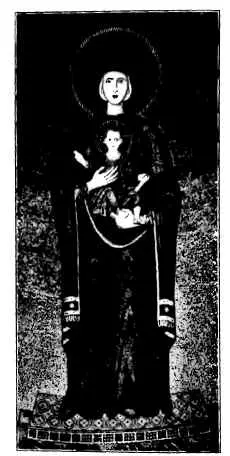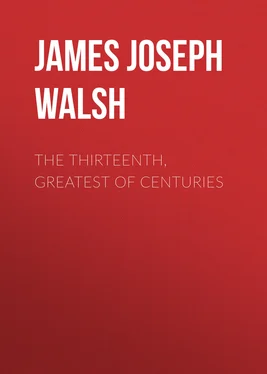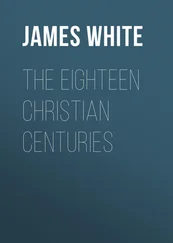James Walsh - The Thirteenth, Greatest of Centuries
Здесь есть возможность читать онлайн «James Walsh - The Thirteenth, Greatest of Centuries» — ознакомительный отрывок электронной книги совершенно бесплатно, а после прочтения отрывка купить полную версию. В некоторых случаях можно слушать аудио, скачать через торрент в формате fb2 и присутствует краткое содержание. Жанр: foreign_prose, История, foreign_edu, foreign_antique, на английском языке. Описание произведения, (предисловие) а так же отзывы посетителей доступны на портале библиотеки ЛибКат.
- Название:The Thirteenth, Greatest of Centuries
- Автор:
- Жанр:
- Год:неизвестен
- ISBN:нет данных
- Рейтинг книги:3 / 5. Голосов: 1
-
Избранное:Добавить в избранное
- Отзывы:
-
Ваша оценка:
- 60
- 1
- 2
- 3
- 4
- 5
The Thirteenth, Greatest of Centuries: краткое содержание, описание и аннотация
Предлагаем к чтению аннотацию, описание, краткое содержание или предисловие (зависит от того, что написал сам автор книги «The Thirteenth, Greatest of Centuries»). Если вы не нашли необходимую информацию о книге — напишите в комментариях, мы постараемся отыскать её.
The Thirteenth, Greatest of Centuries — читать онлайн ознакомительный отрывок
Ниже представлен текст книги, разбитый по страницам. Система сохранения места последней прочитанной страницы, позволяет с удобством читать онлайн бесплатно книгу «The Thirteenth, Greatest of Centuries», без необходимости каждый раз заново искать на чём Вы остановились. Поставьте закладку, и сможете в любой момент перейти на страницу, на которой закончили чтение.
Интервал:
Закладка:
There would seem to be one more or less insuperable objection to the consideration of the Thirteenth as the greatest of centuries, and that arises from the fact that the idea of evolution has consciously and unconsciously tinged the thoughts of our generation to such a degree, that it seems almost impossible to think of a period so far in the distant past as having produced results comparable with those that naturally flow from the heightened development of a long subsequent epoch. Whatever of truth there may be in the great theory of evolution, however, it must not be forgotten that no added evidence for its acceptance can be obtained from the intellectual history of the human race. We may be "the heirs of all the ages in the foremost files of time," but one thing is certain, that we can scarcely hope to equal, and do not at all think of surpassing, some of the great literary achievements of long past ages.
In the things of the spirit apparently there is very little, if any, evolution. Homer wrote nearly three thousand years ago as supreme an expression of human life in absolute literary values as the world has ever known, or, with all reverence for the future be it said, is ever likely to know. The great dramatic poem Job emanated from a Hebrew poet in those earlier times, and yet, if judged from the standpoint of mere literature, is as surpassing an expression of human intelligence in the presence of the mystery of evil as has ever come from the mind of man. We are no nearer the solution of the problem of evil in life, though thousands of years have passed and man has been much occupied with the thoughts that disturbed the mind of the ruler of Moab. The Code of Hammurabi, recently discovered, has shown very definitely, that men could make laws nearly five thousand years ago as well calculated to correct human abuses as those our legislators spend so much time over at present, and the olden time laws were probably quite as effective as ours can hope to be, for all our well intentioned purpose and praiseworthy efforts at reform.
It used to be a favorite expression of Virchow, the great German pathologist, who was, besides, however, the greatest of living anthropologists, that from the history of the human race the theory of evolution receives no confirmation of any kind. His favorite subject, the study of skulls, and their conformation in the five thousand years through which such remains could be traced, showed him absolutely no change. For him there had been also no development in the intellectual order in human life during the long period of human history. Of course this is comparatively brief if the long aeons of geological times be considered, yet some development might be expected to manifest itself in the more than two hundred generations that have come and gone since the beginning of human memory. Perhaps, then, the prejudice with regard to evolution and its supposed effectiveness in making the men of more recent times superior to those of the past, may be considered to have very little weight as an a priori objection to the consideration of the Thirteenth Century as representing the highest stage in human accomplishment. So far as scientific anthropology goes there is utter indifference as to the period that may be selected as representing man at his best.
To most people the greater portion of surprise with regard to the assertion of the Thirteenth as the greatest of centuries will be the fact that the period thus picked out is almost in the heart of the Middle Ages. It would be not so amazing if the fifth century before Christ, which produced such marvelous accomplishments in letters and art and philosophy among the Greeks, was chosen as the greatest of human epochs. There might not even be so much of unpreparedness of mind if that supreme century of Roman History, from fifty years before Christ to fifty years after, were picked out for such signal notice.

VIRGIN WITH THE DIVINE CHILD (MOSAIC, ST. MARK'S, VENICE)
We have grown accustomed, however, to think of the Middle Ages as hopelessly backward in the opportunities they afforded men for the expression of their intellectual and artistic faculties, and above all for any development of that human liberty which means so much for the happiness of the race and must constitute the basis of any real advance worth while talking about in human affairs. It is this that would make the Thirteenth Century seem out of place in any comparative study for the purpose of determining proportionate epochal greatness. The spirit breathes where it will, however, and there was a mighty wind of the spirit of human progress abroad in that Thirteenth Century, whose effects usually miss proper recognition in history, because people fail to group together in their minds all the influences in our modern life that come to us from that precious period. All this present volume pretends to do is to gather these scattered details of influence in order to make the age in which they all coincided so wonderfully, be properly appreciated.
If we accept the usual historical division which places the Middle Ages during the thousand years between the fall of the Roman Empire, in the Fifth Century and the fall of the Grecian Empire of Constantinople, about the middle of the Fifteenth, the Thirteenth Century must be considered the culmination of that middle age. It is three centuries before the Renaissance, and to most minds that magical word represents the beginning of all that is modern, and therefore all that is best, in the world. Most people forget entirely how much of progress had been made before the so-called Renaissance, and how many great writers and artists had been fostering the taste and developing the intelligence of the people of Italy long before the fall of Constantinople. The Renaissance, after all, means only the re-birth of Greek ideas and ideals, of Greek letters and arts, into the modern world. If this new birth of Greek esthetics had not found the soil thoroughly prepared by the fruitful labor of three centuries before, history would not have seen any such outburst of artistic and literary accomplishments as actually came at the end of the Fifteenth and during the Sixteenth centuries.
In taking up the thesis, The Thirteenth the Greatest of Centuries, it seems absolutely necessary to define just what is meant by the term great, in its application to a period. An historical epoch, most people would concede at once, is really great just in proportion to the happiness which it provides for the largest possible number of humanity. That period is greatest that has done most to make men happy. Happiness consists in the opportunity to express whatever is best in us, and above all to find utterance for whatever is individual. An essential element in it is the opportunity to develop and apply the intellectual faculties, whether this be of purely artistic or of thoroughly practical character. For such happiness the opportunity to rise above one's original station is one of the necessary requisites. Out of these opportunities there comes such contentment as is possible to man in the imperfect existence that is his under present conditions.
Almost as important a quality in any epoch that is to be considered supremely great, is the difference between the condition of men at the beginning of it and at its conclusion. The period that represents most progress, even though at the end uplift should not have reached a degree equal to subsequent periods, must be considered as having best accomplished its duty to the race. For purposes of comparison it is the amount of ground actually covered in a definite time, rather than the comparative position at the end of it, that deserves to be taken into account. This would seem to be a sort of hedging, as if the terms of the comparison of the Thirteenth with other centuries were to be made more favorable by the establishment of different standards. There is, however, no need of any such makeshift in order to establish the actual supremacy of the Thirteenth Century, since it can well afford to be estimated on its own merits alone, and without any allowances because of the stage of cultural development at which it occurred.
Читать дальшеИнтервал:
Закладка:
Похожие книги на «The Thirteenth, Greatest of Centuries»
Представляем Вашему вниманию похожие книги на «The Thirteenth, Greatest of Centuries» списком для выбора. Мы отобрали схожую по названию и смыслу литературу в надежде предоставить читателям больше вариантов отыскать новые, интересные, ещё непрочитанные произведения.
Обсуждение, отзывы о книге «The Thirteenth, Greatest of Centuries» и просто собственные мнения читателей. Оставьте ваши комментарии, напишите, что Вы думаете о произведении, его смысле или главных героях. Укажите что конкретно понравилось, а что нет, и почему Вы так считаете.












